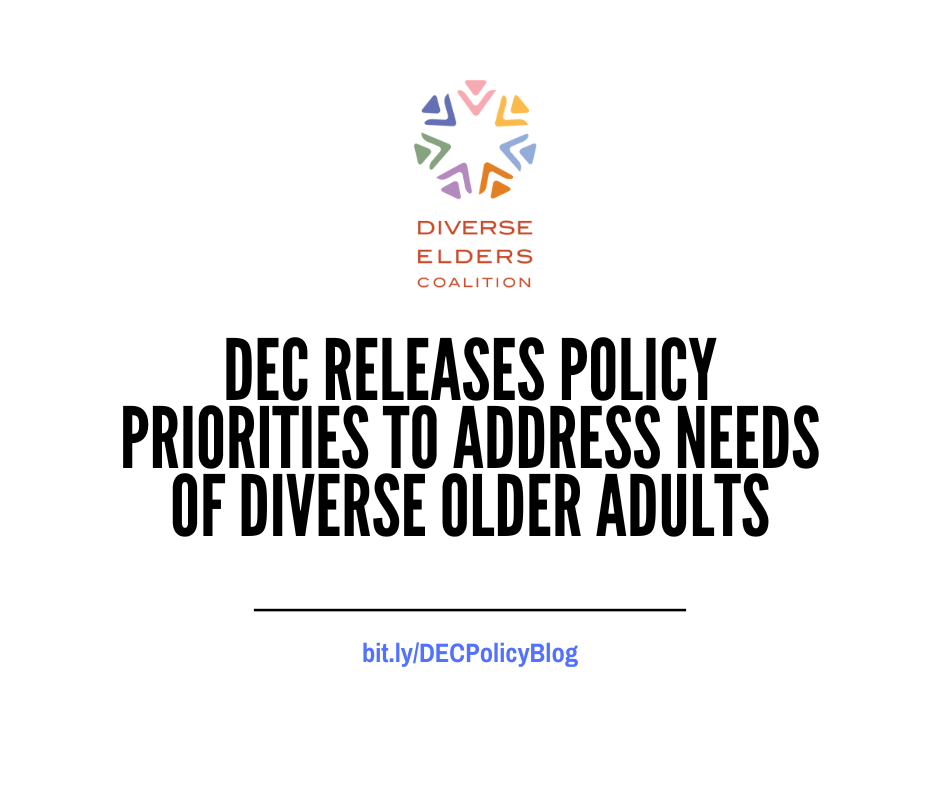In collaboration with our six national member organizations, the Diverse Elders Coalition (DEC) is excited to share its new Policy Priorities to focus the attention of policymakers on the urgent needs of the growing number of diverse older adults in the United States. Collectively, we at the DEC are working to strengthen policies and programs that will enhance the health and wellbeing of diverse older adults, while taking an intersectional approach – across racial, sexual orientation and gender identity (SOGI), and American Indian and Alaska Native (AI/AN) lines – to the systemic barriers that continue to undergird persistent disparities and inequities.
Not only is the U.S. older adult population rising rapidly, but it is also becoming increasingly diverse. According to the most recent U.S. Census, the share of Americans 65 or older expanded by more than a third from 2010 to 2020, the fastest increase in 130 years. Over the next two decades, the White (non-Hispanic) older population is expected to increase by 26%, while older racial and ethnic minority populations are expected to grow by 105%, including:
- Hispanic by 148%;
- African American (not Hispanic) by 73%;
- American Indian and Alaska Native (not Hispanic) by 58%; and
- Asian American (not Hispanic) by 93%.
DEC’s Policy Priorities outline four key pillars for policymakers to elevate and strengthen:
- Ensure Equitable Access to the Spectrum of Services and Lifelong Needs for Diverse Older Adults;
- Provide Adequate Resources to Enable Diverse Older Adults to Age in a Place of their Choice, within Age-Friendly Communities;
- Address the Needs of Diverse Caregivers for Older Adults; and
- Expand Data Collection, Disaggregation, and Reporting both among and within Diverse Populations.
We look forward to advocating for these overarching policy goals and working with policymakers to ensure relevant programs better support older adults from all communities.

